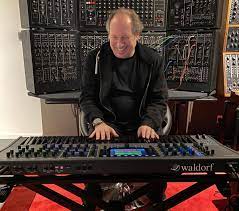Contents
Introduction: Who is Hans Zimmer?
Hans Zimmer is an eminent composer hailing from Frankfurt, Germany. Renowned for his groundbreaking contributions to the world of film scoring, Zimmer has established himself as a pioneer of contemporary cinematic music.
With over 200 film scores under his belt, this award-winning composer has a track record that speaks volumes about his unmatched talent. In this extensive examination, we dive deep into the intricacies of Zimmer’s masterpieces and examine the profound impact of his work on the world of movies.
The Evolution of Hans Zimmer’s Sound
Hans Zimmer’s initial foray into the realm of movie scoring was markedly different from the epic orchestral scores he is now famous for. His earlier work demonstrated a unique blend of electronic music with traditional orchestral arrangements. Over the years, 휴대폰 소액결제 현금화 방법 his sonic palette has evolved to incorporate a wide range of musical elements, from African choirs to custom-created instruments.
The Synthesizer Era
In the late 1980s and early 1990s, Zimmer was known for his use of synthesizers. Films like Rain Man and Thelma & Louise were exemplary of this phase, employing a combination of synthesizers and traditional instruments to produce groundbreaking scores.
Orchestral Grandeur
By the late ’90s, Zimmer began transitioning into full orchestral scores, with films like The Prince of Egypt and Gladiator serving as pivot points in this transformation. This period solidified his reputation as a master of grand, sweeping cinematic music.
Notable Movie Scores by Hans Zimmer
Inception: A Symphony of Dreams
In the 2010 Christopher Nolan film, Zimmer employed a minimalistic approach, using a slowed-down version of Edith Piaf’s song “Non, Je Ne Regrette Rien” as a basis for a score that mimics the complexities of a dream.
The Lion King: A Sonic Tapestry of Africa
Who can forget the iconic songs of Disney’s The Lion King? With a mixture of African elements and grand orchestral motifs, this score is a testament to Zimmer’s genius in weaving various musical threads into a coherent narrative.
Interstellar: Journey Through Time and Space
With its use of a pipe organ and a focus on minimalistic, resonant melodies, the score for Interstellar is yet another standout. It captures the vastness of space and the intricacies of time with auditory brilliance.
Awards and Recognition
Hans Zimmer has received numerous accolades throughout his career, including Academy Awards, Grammys, and Golden Globes. His work has not only been commercially successful but has also garnered critical acclaim for its innovative approach to storytelling through sound.
Impact on Modern Cinema
The influence of Zimmer’s work extends beyond the scores themselves. He has fundamentally changed the way filmmakers and audiences view the role of music in movies. His collaboration with other industry giants like Christopher Nolan and Ridley Scott has resulted in a new cinematic language that utilizes sound as an essential part of the narrative.
The Zimmer Effect: His Legacy and Influence
Hans Zimmer’s impact on the film industry is both undeniable and far-reaching. Upcoming composers often cite him as a major influence, and his sound can be heard echoing through numerous movies, even those he hasn’t personally scored.
Conclusion: The Timelessness of Zimmer’s Work
From synthesizers to full orchestras, from Hollywood blockbusters to independent films, Hans Zimmer has proved that music is a potent tool for storytelling. His journey through various musical landscapes serves as an inspiration, making him a true maestro of modern cinema.
